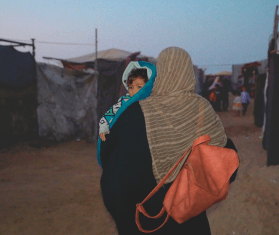Doctors Without Borders/Médecins Sans Frontières(MSF) teams in Mali are helping victims of recent floods in the Ténenkou, Douentza, and Bankass regions by distributing essential items such as blankets and mats.
For the first time since 1966, the levees in Ténenkou were unable to prevent the town from being completely flooded from heavy rains this year. Septic tanks are full of rainwater, filling wells and complicating access to drinkable water for daily consumption. Several regions of the country are affected, including the capital of Bamako. Malian authorities have declared a state of national disaster and launched an appeal for international mobilization after 47,000 people were affected in August, with around 100 injured and 30 dead.
In response, MSF mobilized its medical and logistical teams to carry out assessments of flood-affected areas. “Families have lost all their belongings to the floods,” says Paul Solomon Okech, MSF project coordinator in Douentza. “Their homes have been flooded or collapsed, and some have been rehoused in schools while others are living in the open air and sleeping on the ground.”
This situation increases the vulnerability of communities already suffering from the consequences of insecurity in the country, which has lasted for over 10 years. “Sites hosting displaced people fleeing violence have also been flooded, as in Ténenkou, further deteriorating their already precarious living conditions.”
In support of the authorities, MSF donated essential household items to almost 600 flood-affected families.

Floods increase disease risk
Floods exacerbate the risk of epidemics, waterborne diseases, and malaria, so MSF is stepping up medical care for these diseases in Ténenkou and Douentza, as well as implementing prevention measures in patient reception units and at the community level through awareness-raising activities.
“We have facilitated access to drinking water in Ténenkou to prevent the development of certain waterborne diseases, and have strengthened our epidemiological surveillance system,” says Gamba Felicite Chantal, MSF medical coordinator in Mali. “We have begun to provide temporary support to the Ténenkou central health center and the Dalla health center in Douentza in order to care for all victims during this crucial period, and we are running mobile clinics at sites where disaster victims have gathered. More than 100 people have already been seen at the Ténenkou sites.”

More assistance is needed
MSF is currently advocating for other humanitarian actors to provide more assistance to flood victims through the provision of food, shelter, and protectionThe country is still expecting to see heavy rains this season, which could lead to further flooding. On September 26, the authorities placed several localities in the country under red alert, including certain districts of Bamako.




